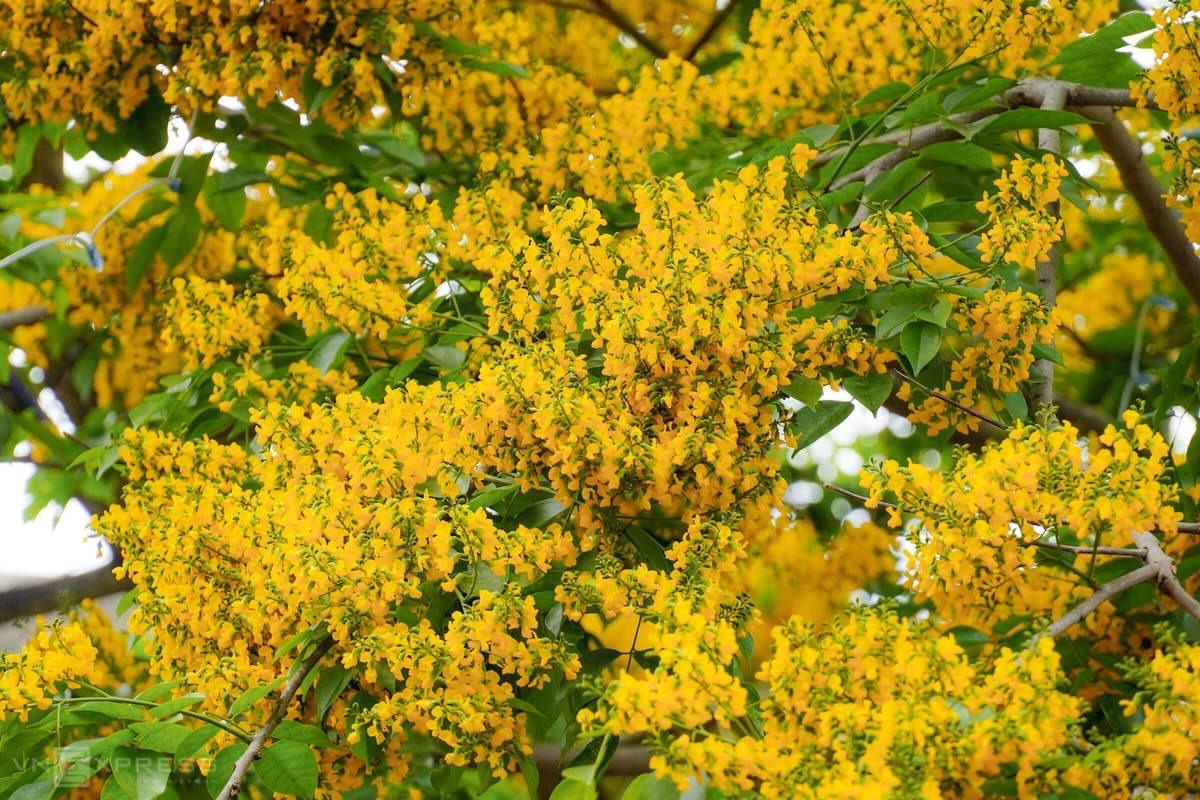
In late March and early April, UNESCO heritage site Hoi An in central Vietnam is illuminated by blooming sua flowers (Dalbergia tonkinensis).
In late March and early April, UNESCO heritage site Hoi An in central Vietnam is illuminated by blooming sua flowers (Dalbergia tonkinensis).
 |
| Phan Chu Trinh Street is canopied by yellow sua flowers. Sua was a wild tree in Quang Nam Province, home to ancient town Hoi An, before locals started growing it for firewood in rural areas. |
 |
|
A man rides a bicycle under the shades of sua flowers. Hoi An has pioneered pedestrian-friendly streets in the country since 2004. Motorbikes and cars are banned from the town center from 9 a.m. to 11 a.m. and 3 p.m. to 9:30 p.m. Locally, most hotels, restaurants and homestay facilities offer bike rental services. |
 |
||
|
Two vendors ride on Phan Chu Trinh Street.
The novel coronavirus pandemic left the town largely deserted. |
 |
| Hoi An has managed to preserve its tranquility and slow pace of life with its signature yellow walls and centuries-old houses. |
 |
| Due to the impacts of Covid-19, restaurants and entertainment services across Hoi An were temporarily suspended until further notice. The country has recorded 153 infections, including 17 people who had been treated and discharged. The majority of active cases are returnees from Europe and the U.S. and people in close contact with them. |
 |
| Due to the impacts of Covid-19, restaurants and entertainment services across Hoi An were temporarily suspended until further notice. The country has recorded 153 infections, including 17 people who had been treated and discharged. The majority of active cases are returnees from Europe and the U.S. and people in close contact with them. |
(Source: VNExpress)






